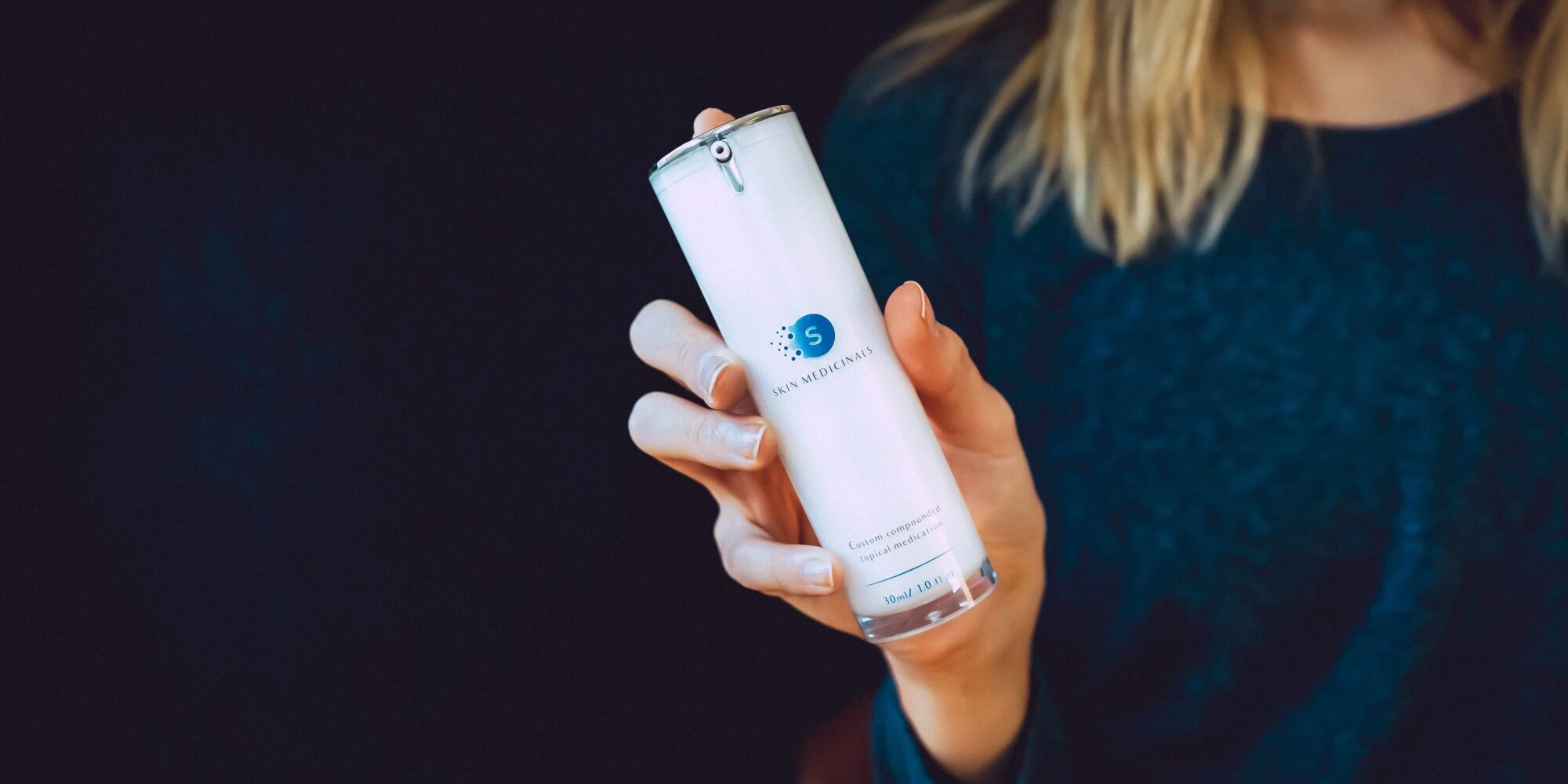
Why Martha Stewart Calls Dhaval G. Bhanusali “The Willy Wonka Of Derm”
Dhaval G. Bhanusali believes a skincare formula should be evaluated not just by its star ingredient, but by the sum of its parts. The same can be said for his varied professional pursuits. A dermatologist who opened Hudson Dermatology & Laser Surgery in New York about two years ago, Bhanusali’s business ventures have extended his reach beyond his practice to fellow dermatologists with custom skincare platform Skin Medicinals, hair loss treatment specialist Hairstim and Aire, a medical services and software company enabling doctors’ offices to offer savings on skincare products to their patients. He’s also consulted for big companies as different as Johnson & Johnson, Solta Medical and Amazon.
Next up for Bhanusali is a skincare brand with another multi-hyphenate, Martha Stewart. More generally on the beauty scene, he predicts azelaic acid will be a huge skincare ingredient this year and personalization will become an even more powerful force in the industry. “For each person, we are going to ask, ‘Why do they have hair loss? Why do they have psoriasis? What specific mutation do they have? What ingredient are they going to respond to?” says Bhanusali. “That’s the future, and I’m super excited about it.” Beauty Independent talked to Bhanusali about what else he’s excited about (preview: skinimalism) and a few things he’s not as excited about (e.g., clean beauty).
How did you get into the field you’re in?
Dermatology is an incredible field. My father was an orthopedic surgeon, but 8-hour surgeries weren’t for me. I really liked oncology. I just thought there was something so incredible about trying to heal people who were in tough spots. But I sometimes take work home with me, and that is a deeply emotional field. I probably wouldn’t have been able to handle it with the grace that some do.
Derm is kind of everything. You have your procedures. They’re a little bit shorter, which is nice, and you have skin cancer, but, fortunately, the vast majority—99% of our patients—do well afterwards because we cut out the skin cancer. And you develop longstanding relationships with your patients, which I really, really appreciate. I’m also kind of a crazy scientist.
Derm is one of those insanely amazing fields where you can actually see the results of your work in real time because it’s so visual. You might not see that if you’re doing a hypertension treatment or a diabetes treatment. With dermatology, I found the opportunity to really marry my interests as a scientist in technology, beauty and skincare. It’s really fun to try to solve as many as I possibly can—and I’ll be busy for a long time.
How did you start working with companies like J&J?
Early in my career, I worked at ABC. I interned there in their medical unit. So, I understood the importance of communication and education. I love the science. I’m not very good at marketing or sales. I feel almost awkward. Interviews like this, I’m still not completely comfortable, but I understand this is an opportunity to share a story. Whether it gets somebody to start looking at beauty with a different lens, that’s always a net positive.
Because I was a scientist, I was presenting early. I was traveling around that world, giving talks. Skincare companies and even pharma companies early on wanted to collaborate. It’s one thing to treat patients, another thing to understand how to treat them, why you’re treating them, what potential can be in the future of how to treat them, where the field is going, all these different things. I try my best to be well grounded and well versed in everything.
Talk to us a little bit about your work for the companies.
They’d be like, “What’s the next big thing in skincare?” or “What are you seeing in your patients that there’s an opportunity for us to help?” It was nice to kind of have that relationship with some of these bigger companies. It’s not fair for anybody to assume that a bunch of people who are in a boardroom can understand the pain points of patients or doctors. My job was to give perspective.
I’m sure the hardest thing for you is that you see all these studies, and you don’t know what’s real and what’s not real, and when an ingredient is actually good versus one that people are hyping up. So, my job was to figure out if there’s something there. The best example is bakuchiol. Bakuchiol’s grown so much. That was really pushed by the derm world. We saw the studies, we saw the results, and we’re like, “There’s something here.”
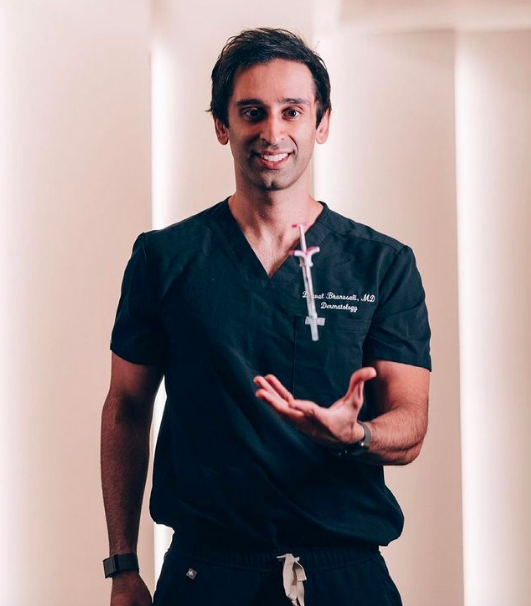
How did you get involved with Amazon’s brand Fast Beauty?
They were launching their first foray into skincare. They wanted to essentially learn, with the understanding that they’re not a skincare company. For me, it was interesting. I would ask them questions like, “How do people consume beauty on their website? And what trends have they seen? Do people search for ingredients first or skincare brands?” These worlds are overlapping, technology, skincare, beauty, dermatology, the science itself, and trying to find that middle ground where all of it kind of comes together is the sweet spot.
I can tell my patients, “Get this,” but why are they getting that? Is there an ingredient in there that they were interested in that they’re searching for? So, the idea was, “How do we use this platform to learn a bit?” It was a really cool opportunity, at least for me, to learn the ins and outs of a different world.
What were your takeaways from working with Amazon?
I can speak on a soapbox about why this certain formula is the ideal one, but, a lot of times, nuances are missed. If you ever look at my social media, I try my best to educate on the why behind why we do certain things. A lot of consumer behavior is dictated around key words. Vitamin C, for example.
People will think vitamin C is vitamin C, and a higher percentage of vitamin C is better. They don’t realize there’s different types of vitamin C, and certain skin types might not be able to tolerate it. I can’t tolerate certain L-ascorbic acids. So, there’s a lot more to it than just vitamin C. But, unfortunately, most people just search for vitamin C on Amazon or any other platform.
What should people know about choosing a vitamin C?
I can’t use pretty much any of the L-ascorbic acids. L-ascorbic acid is the active form of vitamin C. I recommend it all the time, and I always tell my patients like, “Look, if you can tolerate it, this is amazing, but just be careful, especially if you have sensitive skin, if you have rosacea, it just might be a bit much.”
There’s something called tetrahexyldecyl ascorbate (THD or THDA) that’s better for sensitive skin. I tell my patients, “If it says ‘vitamin C,’ look for THDA instead of L-ascorbic and see if you can tolerate that before you spend a ton of money on a more expensive product.”
That’s a little nuance that most people don’t realize. That’s an opportunity for me to educate, at least try my best to, and I think my peers are doing a fantastic job. The whole social media dermatology world, we’re all friends, and we all look out for each other. We all support each other. It’s been humbling to be part of it.
What’s your approach to social media?
I’ve been trying to figure out when I’m supposed to do it. It’s tough because I’m a very private person. I think most of us are, but I like the idea of people understanding their doctor is a human being. One of our patients wrote a book called “New Power.” It was about influences and how people passively influence your life without you realizing it. He gave me an example. He’s like, “I used to not get my annual skin checks as often as I probably should’ve, but I follow you on Instagram, and I’m more regular with my skin checks.”
My big thing is I don’t want people feeling bad. I lean more into educational content. If I post abut Botox, I’d rather it be educational than being like, “Come to see me to look good.” That’s just not my personality. Even with our cosmetics in our office, I’m not very pushy because I think it’s a very intimate decision that should made by a person and not by the doctor convincing somebody to do something.
So, with my social, I’m educational, happy. I show my little niece a lot. We try to make it fun. Social’s a very interesting place. You have to be able to take it with a grain of salt. People criticize anyone and everything, including myself. We try to keep it a positive space. The cool part about building an online community is that you get feedback from people. I learn from all the people that send me messages, and peers and colleagues as well.
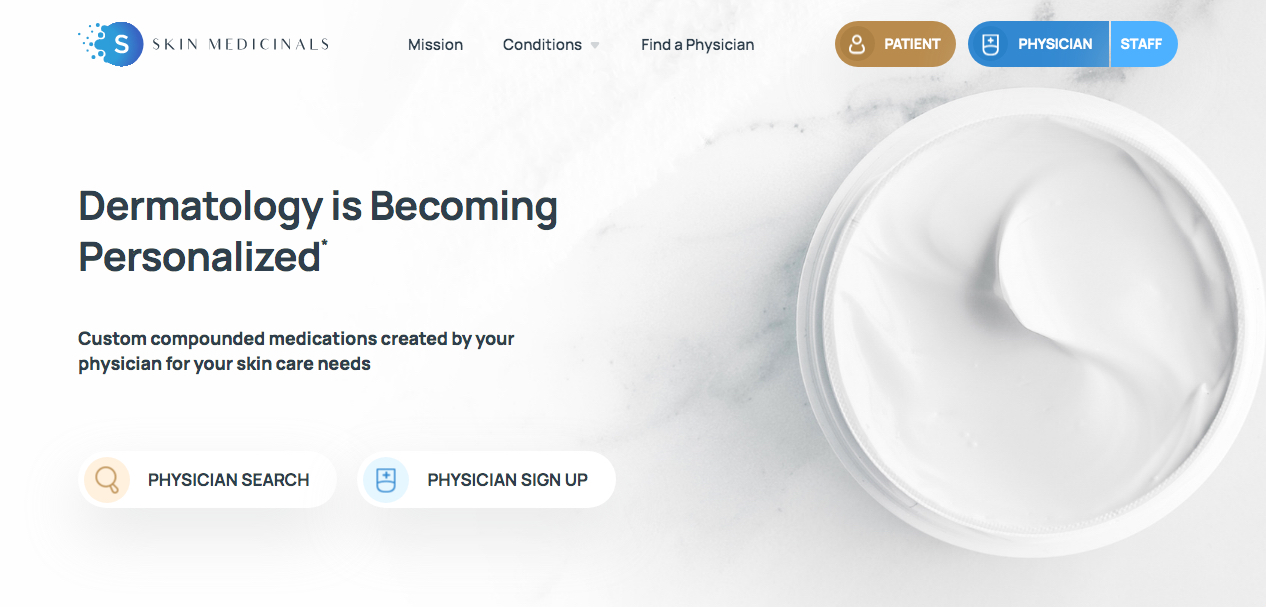
Some dermatologists have come under fire for sponsored content. What do you think of it?
I have steered away from doing anything sponsored. It’s just a personal preference. I don’t really have issues with people who make their own decisions for whatever reasons. Obviously, we have a greater responsibility than most, and we we should always mindful of that.
I think you should only talk about things you really believe in. You can’t pay me enough to compromise my integrity. That’s a hard-and-fast rule. All of us get PR boxes all the time. The general rule I have is, “If I like it, I’ll share it. If I don’t like it, I won’t share it.” It’s not going to be a financial decision. I mean, they don’t pay me anything.
We should always hold ourselves to the highest standard. You want to make sure you’re always upfront. You’re the expert, and I think you can do that within the right constraints. With a lot of this stuff, we’re also all navigating it for the first time. So, we’re trying to learn where the boundaries are and what we’re supposed to do. We try to do our best to do it the right way.
You mentioned people are searching for ingredients. Are they moving to the phase where they are asking, “What type of vitamin C should I use? What type of retinol is best?”
It’s starting to happen on social media, maybe not with our patients yet. Right now, everybody is enamored with the numbers, the percents, but one of the things we’ve been trying to hammer home is that you don’t know what that means. Certain formulations do make a difference. In a certain formulation, you have your star ingredients, and you also have your supporting players, which may be just as important.
We have a project called Hairstim. Hairstim essentially is a compounding platform. The dermatologist can create a personalized prescription compound for hair that they feel is appropriate for their patient. Minoxidil is the quote unquote star ingredient for all hair loss options, but the question is, “How do you increase the absorption of the minoxidil?” There are studies that show that retinoic acid can help.
Once people realize there’s a lot more to it than just slapping a name and a percentage on a product, then results will matter more. People will hold results to a higher standard. There’s a lot of products out there that are not insanely expensive that work really well, and a lot of products that are insanely expensive that don’t work very well. As the average customer or patient gets more educated, we’ll start seeing the cream rise to the top.
Tell us more about Skin Medicinals.
Three, four years ago, generic prescriptions were going through the roof in prices. Then, the government realized there’s supposed price fixing going on. They sued all these companies. Nobody really knows what happened, but the prices are still high. What do you do when you look at somebody in the eye, and you’re like, “Hey, your $20 medication now costs $400 with your insurance”? You can’t bankrupt people to get them better.
We’re using compounding as a means to improve the access and the affordability for medication for patients. It wasn’t a well-thought-out plan. It was just an idea. I was like, “Hey, let’s just do this thing because we need to do something.” It was just a hope that this could be an option for patients.
It went from a small idea to I think we’re at 7,400 prescribers, which is crazy. There’s only about 10,000 to 12,000 dermatologists out there. We just hit 300,000 patients. That’s the size of some of these big, big companies like the Hims of the world. Thirty Madison, one of the bigger companies, is at 250,000 patients. It was really humbling to watch this thing grow.
In the beauty industry, there’s been a shift away from beauty to skin health. What does skin health mean to you?
That’s our dream. Beauty is a very fascinating topic. I have a personal belief that you’re not really supposed to dramatically change how somebody looks. You can make them look more like themselves or more like they did before, if that makes them happy, but you don’t have to make somebody look like somebody else because they ask you to. So, I think the idea of promoting and celebrating skin health is way more comfortable for me.
You want a healthy skin barrier. You’re going to look better, feel better. Beyond that, this is how you prevent actinic damage, hopefully, skin cancers, infections. You don’t want to exfoliate yourself to oblivion like we were taught when we were younger, doing all these crazy pads. You want to nourish. You want to calm. You want to fortify. The skin is an organ. The idea is you have to make sure you care for it like you care for everything else.
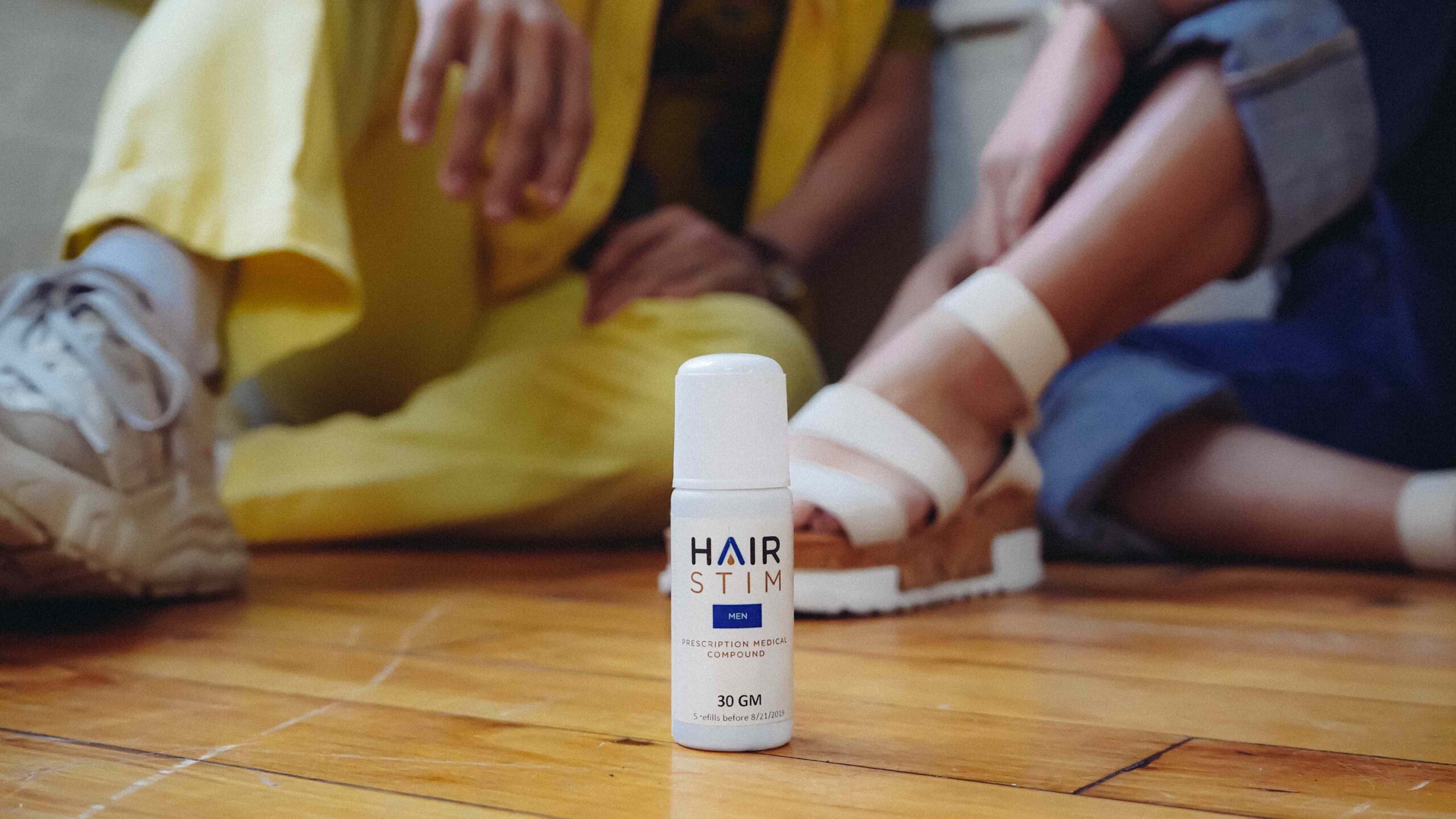
What goals do you have for your numerous ventures?
For Skin Medicinals, I’m figuring it out. It’s become its own kind of phenomenon in our field. It’s being used so widely. My questions become, “Why is insulin so expensive? In ophthalmology, why are people paying $300 with insurance for eye drops that have been around for like 20 years? Can we take that same idea and really challenge the status quo and really help accessibility for everyone across medicine?” It’s still just in my brain right now.
With Hairstim, I don’t know. It’s just a fun project, and we have so many projects. We have Aire. We help dermatologists provide products for their patients at discounted prices. That’s early in its infancy. I believe in empowering my colleagues. So, if we can provide a way for them to pick and choose the right products for patients and obviously save money for patients, it’s always top of mind. We’re going to build that with the derm field.
We have skincare lines coming out. The one that is public is with Martha Stewart. She’s like family to me. She’s somebody I talk to multiple times a week, a mentor. The cool thing that is happening now in skincare is that a lot of these things are taking the opinions of dermatologists as founding formulators or partners. I really like that. Obviously, I’m a bit biased, but we’re putting science back in the forefront. It’s not marketing.
We get to sit there with the team and really carve out a real routine that could be a beneficial for a specific population of people. We do research studies now. We’ve opened up recently a kind of skincare research institute, if you will. We’re looking at ingredients that people may not have heard of. We are looking how do we stabilize ingredients better and get better efficacy.
I think Martha coined it. She’s like, “You’re like the Willy Wonka of derm. You kind of just love building weird crazy things, exploring stuff.” It’s true. Our office is like the Willy Wonka Chocolate Factory. The skincare part is cool because it’s nice to have an impact on people who might not be able to make it to a dermatology office.
What are your thoughts on clean beauty?
I like how Charlotte Palermino—she’s a friend—talked about it. She’s like, “Look, a lot of the clean beauty messaging comes from brands who sell clean products.” It’s hard to figure out what you believe if they’re just fearmongering. I have to be practical, right? If you drink too much water, you can get sick. Water’s a very clean ingredient. Anything in excess can be bad for you. You have to always be careful with what you’re doing. There’s always more nuance than just saying something is bad or good. I think context is really important.
I like ingredients with purpose. That’s my big thing. Why are you putting a certain ingredient in there? Everything should have a reason for being in there. I’m a minimalist. I don’t think you need to have 8 billion actives to make a good formula. I feel like the marketing and messaging, it’s so dramatic and, a lot of times, unfounded. They’re turning what could be such a good thing into something that might not be as good as we had hoped it to be. That worries me.
What do you think will be the lasting impacts of the pandemic in terms of skincare and haircare?
There’s more of a mindfulness in life for all of us. We’re more educated in terms of what we put on our face and into our bodies. We’ve gone away from 15-step skincare routines to keep it minimal because the skin has become way more sensitive. In terms of hair loss, it’s probably the No. 1 thing we’ve seen a bump in at our office.
We’ve all given ourselves more grace. Pre-pandemic, somebody had a pimple, it was like end of the world. Now, it’s like, “Eh, whatever, put a little star patch on it or just let it be, let it breathe, and it’s fine.” I think we should all understand that there’s things to get overworked about and things that you don’t need to. It’s kind of nice that people are being nicer to themselves.
This interview has been edited for clarity and brevity.

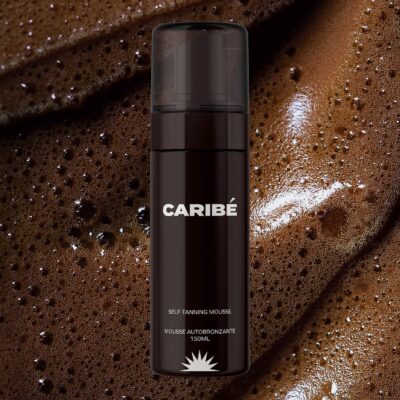
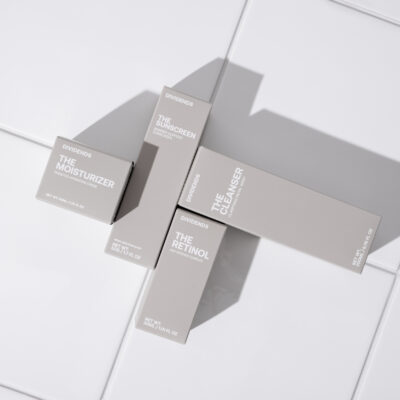

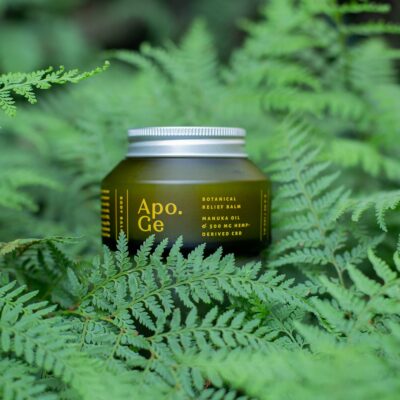
Leave a Reply
You must be logged in to post a comment.